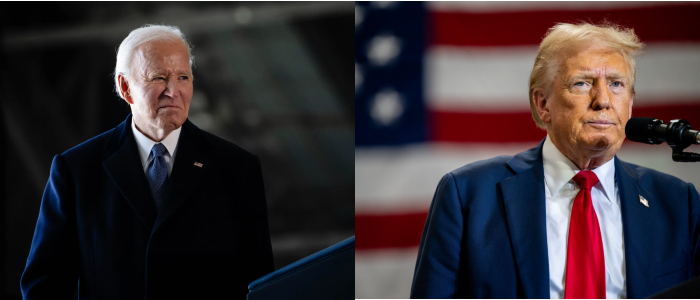Citizens of Canada will vote in the 45th general election in less than a week, on April 28. In fact, advance voting already began on April 18. All Canadian citizens aged 18 or older—whether residing in Canada or abroad, elderly individuals in hospitals, or prisoners in jails—are entitled to vote.
Canada is also one of only four countries—alongside Ireland, Italy, and Sweden—where people with intellectual disabilities have the right to vote. Exceptions In a country with perhaps one of the world’s most inclusive voting systems, only two individuals are excluded from voting. The Chief Electoral Officer, a nonpartisan official appointed by Parliament to oversee elections, is barred from voting during the 10-year tenure.

Similarly, the Governor General, who represents King Charles as Canada’s head of state, traditionally abstains from voting to maintain the neutrality of the office. Electoral system Canadians do not directly elect the Prime Minister. Instead, they vote for candidates to represent their electoral districts—called “ridings” in Canadian parlance—in the House of Commons.
This election features 343 seats, five more than the last, due to population growth. The candidate with the most votes in each riding becomes a Member of Parliament (MP) and holds the seat until the next election. The House of Commons is elected for a five-year term.
The party that wins the most seats generally forms the government, and its leader becomes the prime minister. A crisis unfolds Federal elections in Canada were originally scheduled for October 20, but an unprecedented political crisis in Ottawa led to their early arrival. The turmoil began with the abrupt resignation of Chrystia Freeland—long considered a loyal ally of Prime Minister Justin Trudeau—from her roles as Finance Minister and Deputy Prime Minister on December 16, 2024.
Her sudden departure, coupled with public criticism of Trudeau, shocked Canadians and threatened to destabilise a government once known for stability. Her exit cast a shadow over Trudeau’s increasingly unpopular administration. Trudeau, who became Prime Minister in 2015 on a wave of optimism and promises of “sunny days”, was now under mounting pressure.
Resignation On January 6, facing sharp criticism from Freeland, falling approval ratings, and internal party pressure, Trudeau announced his resignation. “I intend to resign as party leader and as Prime Minister after the party selects its next leader through a robust, nationwide competitive process,” Trudeau said. “This country deserves a real choice in the next election, and it has become clear to me that if I’m having to fight internal battles, I cannot be the best option in that election.
” Thus ended Trudeau’s nine-year tenure as Prime Minister in ignominy. Once seen as a beacon of hope, he left office haunted by declining popularity—only 22 per cent of Canadians believed he was doing a good job. Enters the ring The ruling Liberal Party chose Mark Carney, a well-respected economist and former central banker with degrees from Harvard and Oxford, as its new leader, replacing Trudeau.
It marked Carney’s debut in frontline politics. He took over a party struggling with declining support and criticism over its handling of social and economic issues. Takes over On Friday, March 14, Mark Carney, 59, took the oath of office as Prime Minister.
He appointed a compact, streamlined cabinet and vowed to safeguard Canada’s interests amid renewed tariff threats from Donald Trump, who has revived claims about making Canada the 51st US state. The snap poll Barely ten days into his tenure, as widely expected, Carney called a snap poll for April 28, allowing for a minimum campaign period of 37 days. As Canadians prepare to vote, the ruling Liberals face the Conservative Party (120 seats in the dissolved House), the Bloc Québécois (33 seats), and the New Democrats (NDP), with 24 seats.
The players The main contenders in this election are: However, Trudeau’s exit and Carney’s arrival shifted the landscape, giving the Liberals a new spark. Other notable candidates include: Despite the four leaders in the race, only Carney and Poilievre are considered viable candidates to lead their parties to a governing majority. Who will win? Had the election occurred three months ago, the Conservative Party and Poilievre would have likely won easily, given Trudeau’s abysmal ratings and Poilievre’s high popularity.
But two major developments have made the contest interesting: As a result, the Conservatives’ once-massive 30-point lead has disappeared. According to the latest rolling three-day Nanos poll released Monday, the Liberals now lead with 43.7 per cent public support, while the Conservatives trail with 36.
3 per cent. The NDP stands at 10.7 per cent.
If these numbers hold, the Liberals are on track to secure a majority of the 343 seats in the House of Commons. Challenges for the next prime minister The next prime minister, regardless of who wins on April 28, faces significant challenges and must prioritise several key areas. To protect Canada’s interests, Canadian leadership must stand firm against Donald Trump and navigate the tense relationship with the US.
Domestically, stabilising the economy and improving Canadians’ financial well-being will be crucial. Additionally, the next government must address growing provincial divides and work to bridge the gaps. Ultimately, rebuilding public trust in governance will be essential to restoring faith in the political system and ensuring a stronger, more united Canada.
The author is a multi-disciplinary thought leader with Action Bias and an India based impact consultant. He is a keen watcher of changing national and international scenarios. He works as President Advisory Services of Consulting Company BARSYL.
Views expressed in the above piece are personal and solely those of the author. They do not necessarily reflect Firstpost’s views..
Politics

Canada heads to polls within a week, but PM's crown is all thorns amid economic woes

Had the election occurred three months ago, the Conservative Party and its leader Pierre Poilievre would have won easily, given former PM Justin Trudeau’s abysmal ratings and Poilievre’s high popularity. But the Trump effect and Mark Carney’s premiership have made the contest interesting















